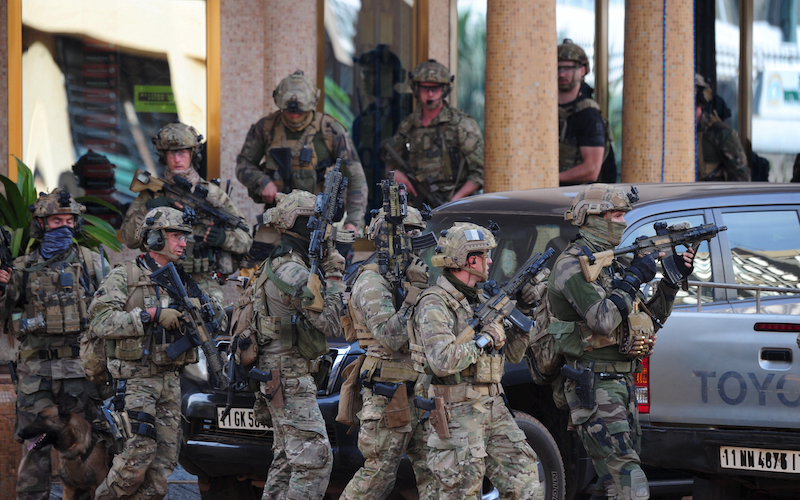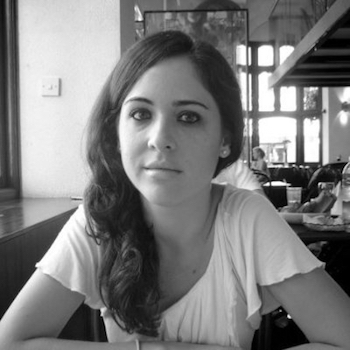
Can Burkina Faso’s Security Keep up with Trade?
Two narratives are unfolding out of Burkina Faso: one of growth opportunity appealing to foreign investors, and another of terrorism and the government’s raging brawl against AQIM. Last month, gunmen affiliated to Al-Qaeda in the Islamic Maghreb, or AQIM, stormed the Splendid Hotel, a luxury hotel in Ouagadougou, shooting some and taking others hostage in a siege that lasted hours and ended with 30 people dead and 55 injured. This attack echoes a similar attack suffered in neighboring Mali where, less than three months ago, gunmen raided the Radisson Hotel in Bamako and slaughtered 21 people, many of whom were Westerners.
The tourism sector, already struggling due to political instability prior to Burkina Faso’s recent elections, will surely suffer. While tourism is limited, this country has developed some unique attractions of both economic and symbolic significance, like its bi-annual Panafrican Film Festival.
The sprawling Islamist conflict in West Africa has now spilled into Burkina Faso and experts insist the timing is not random.
“We are at a moment of political fragility because the country is coming out of a transition after 27 years and the new government is just starting to get to work,” International Crisis Group analyst Cynthia Ohayon recently stated.
Widespread protests in October, 2014 ousted former President Blaise Compaore, who had reigned for almost 30 years following a 1987 coup. Vowing to improve access to water, healthcare and education, Roch Marc Christian Kabore won the presidential race just two months ago, after a year of political turmoil and an interim government. The first time in several decades that a president ascended to office without launching a military coup makes Kaboré’s win a notable one.
Burkina Faso’s feeble $690 gross per capita income makes this landlocked country one of the poorest in the world. Surrounded by six countries, it covers an area of 274,000 km² and has an estimated population of over 18 million people. The country’s population growth rate remains very high, averaging over 3 percent a year. Like many African countries, Burkina Faso’s economy is profoundly linked to agricultural production: over 80 percent of its population is employed in this sector. Cotton is its key cash crop, while its vast gold reserves have gained prominence in recent years, particularly among Canadian and American investors.
While Burkina Faso has boasted an average annual growth of 6 percent over the past few years, growth slowed to a rate of 4 percent in 2014, largely due to the plunge in gold and cotton prices (27 percent and 8 percent respectively). In tandem, the Ebola epidemic in West Africa spelled serious disruptions for the Burkina Faso economy. Private investments declined as spooked investors adopted a wait-and-see attitude.
Beyond Burkina Faso’s decelerating economic growth and internal security issues lies regional instability in West Africa. For years this predominantly Muslim country had been spared from the violence carried out by Islamic extremist groups. Militant groups linked to Al-Qaeda and Islamic State are taking advantage of weak states, targeting those with a power vacuum that lack strong governing institutions. For nearly a decade, Burkina Faso’s neighbors, Mali, Niger, and Mauritania have battled AQIM, whose sole objective is to rid the region of what they perceive to be the corrupting influence of the West. In fact, during 2012 and 2013, AQIM successfully conquered northern Mali for 10 months, prompting France to send 3,000 troops to recapture it.
Mismanaged areas in West Africa and the Maghreb have created an ideal environment for AQIM to establish safe havens. AQIM currently operates out of the Western Sahara desert, including parts of Algeria, northern Mali, and western Libya, profiting from smuggling routes that cut through the region, as well as the millions of dollars it receives in ransom payments for kidnapped Westerners. Following the fall of Muammar Gaddafi, Libya has emerged as a preferred breeding ground and sanctuary for these groups. It is Africa, not the Middle East, that has seen the sharpest surge in terrorism in recent years.
While extensive international efforts to assist in Burkina Faso’s counter-terrorism are ongoing, the security challenges facing the new Burkinabé government are massive. It is in the interest of Burkina Faso’s national security to work with its West African neighbors on how to approach and develop effective anti-terrorism processes.

